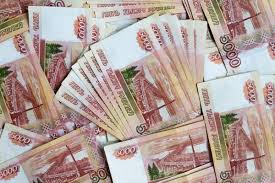On Thursday, Asian importers of Russian gas scrambled as Russian President Vladimir Putin declared “unfriendly” countries must pay in roubles for Russian gas, the latest jolt to global energy markets following Moscow’s invasion of Ukraine.
On the list of unfriendly countries were Japan, South Korea, and Taiwan. Liquefied natural gas (LNG) is imported from the Sakhalin-2 and Yamal LNG projects in eastern Russia by all of them.
Putin stated on Wednesday that Russia would continue to supply gas in the proportions and rates agreed upon in contracts, but that payment would be in Russian roubles. Russia considers its actions in Ukraine a “special military operation.”
Japan, Asia’s largest importer of Russian LNG, had no idea how Russia would enforce the rule.
“Right now, we’re looking into the situation with appropriate ministries because we’re not sure what (Russia’s) goal is or how they’d go about doing it,” Finance Minister Shunichi Suzuki said in parliament.
According to Refinitiv trade flow data, Japan bought 6.84 million tonnes of LNG from Russia in 2021, accounting for roughly 9% of its LNG imports.
According to a company representative, JERA, Japan’s largest LNG customer, has not received any indication from Sakhalin Energy, the joint venture that operates Sakhalin-2, to alter the payment currency from the US dollar. The country’s largest power generator will continue to gather information, according to the spokesperson.
According to data from Japan Oil, Gas and Metals National Corporation, JERA, a thermal power, and fuel joint venture between Tokyo Electric Power Company Holdings and Chubu Electric Power, buys about 2 million tonnes per year of LNG from the Sakhalin-2 project under long-term contracts.
Tokyo Gas and Osaka Gas, the country’s two largest domestic gas suppliers, stated on Thursday that they were also reviewing details on the rouble requirement.
Tokyo Gas, one of Japan’s top LNG customers, declined to comment on any terms of its long-term contract with Sakhalin Energy for 1.1 million tpy, including the currency it will be paid in.
Sakhalin Energy is 50 percent controlled by Russia’s Gazprom, 27.5 percent by Shell, and the remainder by Japanese trading firms Mitsui & Co and Mitsubishi Corp. Shell announced its exit from the project on February 28th, and the Japanese government stated that Shell’s exit had no influence on Japan’s energy imports.
According to their spokesmen, Mitsui and Mitsubishi are verifying the details of Russia’s announcement.
OTHER PURCHASERS
South Korea, Asia’s third-largest importer of Russian LNG, expects to be able to keep importing the gas, with the country’s Financial Services Commission promising to do everything it takes to make trade easier.
Korea Gas Corp announced that it imports roughly 2 million tpy of Russian LNG, accounting for about 6% of the company’s total imports. KOGAS, on the other hand, does not deal directly with Russia because its purchase contract is with Sakhalin Energy, and payments for the gas are made to a Japanese bank in Singapore, according to the company.
“We are not currently witnessing concerns because we are making payments to that Japanese bank,” a KOGAS official said, “but we are actively monitoring the trend.”
According to Taiwan’s economy ministry, state-owned CPC Corp would receive one gas cargo from Russia towards the end of this month.
It stated that “no news of the payment mechanism being modified” had been received.
The demand for rouble payments was interpreted as Putin’s attempt to support the rouble, which had fallen following the implementation of sanctions on Russia.
Putin stated that the government and central bank would have one week to come up with a plan for converting operations to Russian currency and that Gazprom would be required to make the necessary contract adjustments.
According to Eswar Prasad, a trade policy professor at Cornell University, the decision is unlikely to benefit Moscow.
“Foreign importers would no likely be pleased to pay for their purchases of Russian commodities in a currency that is depreciating in value, though obtaining roubles in a way that avoids sanctions could be difficult,” Prasad says.
Receiving roubles as payment would do little to protect the hard currencies. He stated that Russia must maintain its currency’s value in global markets or pay for imports from other countries.

















